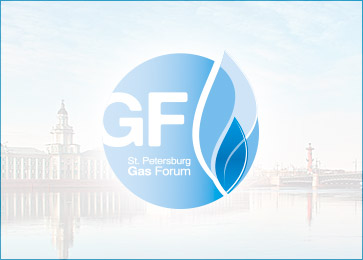
Expoforum hosted the round table "Using Compressed Natural Gas as Engine Fuel. Development of Gas Engine Infrastructure". At the meeting, experts spoke of the barriers preventing widespread use of natural gas as engine fuel in Russia and wheather there are measures to boost this process.
The consumption of natural gas as engine fuel is growing every year, but the growth rate could have been greater. One of the reasons restraining transition of transport to gas is the lack of gas engine technology, its high cost and complexity of maintenance.
In 2016-2017, the Ministry of Industry and Trade of Russia stimulated the demand for gas engine technology by providing subsidies. According to Deputy Director of the Department of the Automotive Industry and Railway Engineering of the Ministry of Industry and Trade of Russia Svetlana Salnikova, in 2017, the state will subsidize 2500 units of equipment. The amount of subsidies granted in the first half of the year amounted to 550 million rubles. The subsidy limit allocated for the year amounts to 3 billion rubles. "However, next year, we have no plans to stimulate gas engine technology as part of the state program of the Ministry of Industry and Trade of Russia. This is due to the fact that the Ministry of Transport of Russia has developed its own program divided into transport-specific subprograms, providing for stimulation of gas engine technology in 2017-2022," – said Svetlana Salnikova.
Participants in the discussion expressed the opinion that without subsidies, the transition of Russian technology to natural gas could slow down, since most of the gas engine transport was purchased under this program. Moderator of the round table, Deputy Director General of Gazprom Gas-Engine Fuel for Commercial Issues Denis Kornienko agreed with his colleagues that there are many nuances in this matter. Notably, gas engine fuel costs less than traditional gas, but gas appliances are more expensive. That's why the buying capacity is poor. "However, one should not rely solely on state subsisies. We need to increase the production of gas engine equipment, instead of capitalizing on subsidies," – says Denis Kornienko.
The main part of the Russian gas-powered fleet consists of small trucks and passenger buses, but in recent years, passenger cars have been added to the list. Thus, AVTOVAZ Concern has developed and has already released a gas version of Lada – Lada Vesta CNG. The driving distance of this kind of a car when it is fully fueled is up to 1000 km. This year, the manufacturer plans to sell 500-700 natural gas-driven vehicles. Next year, there are plans to increase this figure to reach 1.5-2 thousand. Moreover, the manufacturer is actively developing a network of service centers for servicing gas engine vehicles.
Large-scale work to develop the Russian market of gas engine fuel and increase the number of vehicles and vehicles using natural gas is carried out by Gazprom. In particular, Gazprom has adopted a program to convert its own vehicle fleet to natural gas. Since the start of the program, about 7000 units of equipment produced by the company have been operating on natural gas, and more than 100 units of mobile filling infrastructure have been purchased. It is planned that the share of gas engine technology in the structure of the company's transport fleet at the end of 2017 will be 34%, or 9693 units of vehicles.
Participants of the discussion identified several reasons preventing a wide-sweeping shift to natural gas as fuel.
First, measures to stimulate the acquisition of gas engine technology should not be limited to subsidies. In particular, the reduction of customs duties could be a good help.
Secondly, the regulatory framework for the use of compressed natural gas as a gas engine fuel is full of red tape and contains obsolete regulations.
Thirdly, the high operating costs of gas-powered vehicles is another barrier. As an example was given the case of Mosgortrans: to convert the fleet to gas required the company to invest 250 million rubles in the infrastructure. That made the gasification project hardly viable. Another reason is the dependence of the Russian market on imported gas-cylinder equipment.
But, perhaps, the most powerful barrier for the gas engine fuel are the attitudes and preconceptions of the consumer. Besides the objective fears – shortcomings of the regulatory framework, a low number of gas filling stations, there are also irrational ones associated with carrying a gas cylinder in a car or bus.